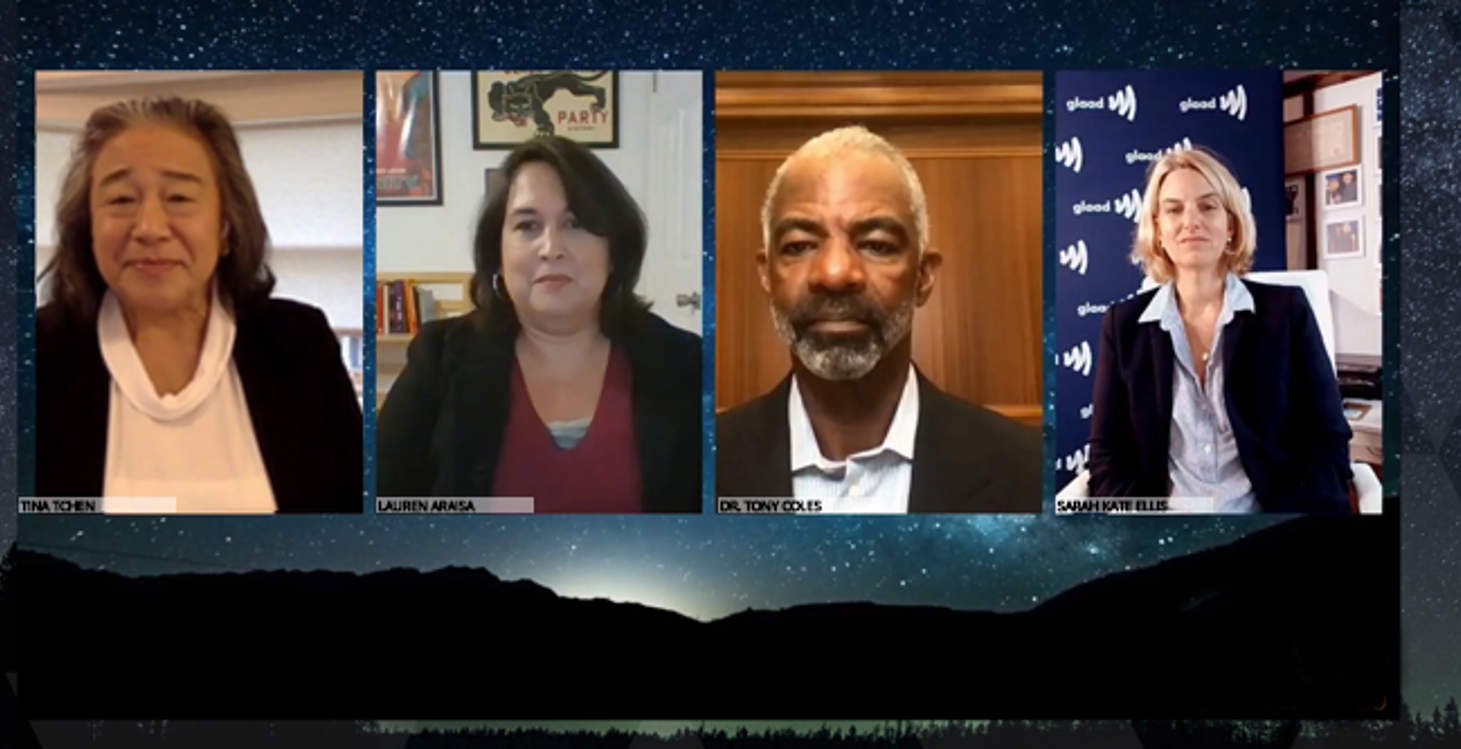Credentials
NACD Directorship Certified™
The premier designation for directors in the United States
Trending Oversight Topics
Governance Surveys
Center for Inclusive Governance
11/17/2020

As Virtual NACD Summit 2020 came to a close last week, it was abundantly clear that the board’s role in overseeing diversity, equity, and inclusion (DE&I) will only continue to grow. A mainstage panel on social justice and “Expert Insights” programs on the social aspect of environmental, social, and governance (ESG) issues and DE&I itself made it clear that directors, investors, and stakeholders all have a keen interest in seeing real progress on the DE&I front.
Indeed, the topics of diversity, equity, and inclusion were not only the focus of NACD Summit sessions, but also the impetus behind a new two-year education program called NACD Accelerate™. The program aims to help build the board talent pipeline, in effect creating a highly diverse new generation of board-ready directors out of high-potential and mid-career executives.
“Diversity and the broad mix of perspectives and experiences that come with it are essential for the robust, insightful discussions that drive good corporate governance,” said Peter R. Gleason, CEO of NACD, in a statement announcing the launch of NACD Accelerate™. “Yet, even with recent gains, diversity is nowhere near where it needs to be in this age of modern governance. NACD believes that we must build a deeper bench of directors now and ensure that all directors are better prepared to lead companies through challenges and uncertainty.”
And this year presented challenges and uncertainty like no other, not merely because of the COVID-19 pandemic but also because of social unrest over racial injustice in the United States. Along this vein, NACD Summit’s mainstage panel titled The Intersection of the Arcs: Social Justice Movements and Corporate Oversight emphasized the importance of understanding historical context and the need for directors to consider stakeholder concerns as a business imperative. The discussion was moderated by Tina Tchen, president and CEO of nonprofit advocacy group Time’s Up, and the panel comprised Denison University Black studies associate professor Lauren Araiza; Dr. Tony Coles, cochair of the Black Economic Alliance; and Sarah Kate Ellis, president and CEO of GLAAD.
During the panel, some 80 percent of Summit attendees responded to a polling question, acknowledging that recent social movements elevated conversations on how to address systemic racism in their boardrooms. One panelist advised directors to be true stewards of the companies they serve and challenged them to take a deeper look into their organizations’ current practices. A framework for considering diversity—”people, purchasing, and philanthropy,” developed by the Black Corporate Directors Conference—was cited as a good starting point for those boards who are early in their journeys toward creating more inclusive corporate cultures. And it was noted that operational changes, such as examining and setting goals around supplier diversity and aligning diversity objectives with executive compensation, can help make management more accountable. The gist of the panel? Resulting pressures from and implications of social justice movements need to be recognized by boards as more than reputational risks—they affect the company’s talent pipeline, productivity, ability to innovate, and, ultimately, the bottom line.
While it has been greatly accepted in recent years that having diverse teams leads to better business results, this was underscored in the “Expert Insights” panel on DE&I, moderated by Anna Catalano, director at Kraton Corp., which comprised speakers Terri Cooper, chief inclusion officer at Deloitte; Stephanie Creary, assistant professor of management at The Wharton School, University of Pennsylvania; and Denice Torres, CEO of The Ignited Company. This panel discussion focused on how recruiting for and otherwise uplifting diversity is only the first step in a much longer journey. Boards must ensure that the companies they serve foster an inclusive and equitable culture to allow for those diverse voices to be heard and respected. As one panelist stated, “Diversity is being invited to the party, equity is playing music, and inclusion is being asked to dance.”
The board should ask itself, What is the partnership between the three terms? What is the corporation’s story if it is diverse but not inclusive? Organizations need all three elements to capitalize on the advantages of having a diverse workforce.
Finally, the session on “Understanding the Board’s Role in the ‘S’ of ESG” provided context for the discussion of diversity and inclusion by looking at the many social issues that have arisen in 2020. Between the pandemic and the renewed vigor of social justice movements, the social aspect of ESG issues has, due to recent events, risen to the top of boardroom agendas. For instance, after the mass move to remote work spurred by the declaration of the pandemic in March, stakeholder performance and health-and-safety considerations became front and center for both board and management teams.
The convergence of these issues led to one key takeaway from the panel for director attendees: Do not be merely performative. Instead, dig down when you see troubling patterns in data related to, for example, employee retention, pay equality, and who is being promoted—all areas that can reveal whether a company is, in fact, making progress. Stakeholders and investors alike will be asking related questions and boards must be prepared to address them with transparency and authenticity. The “S” of ESG can no longer be ignored in the boardroom.

Reaa Chadha is a former senior research analyst at NACD.